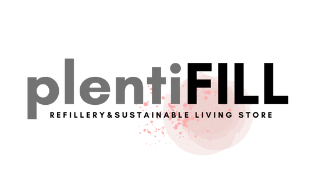Hey friend, I'd like to invite you to join me on a journey this new year! Considering a zero-waste lifestyle can be overwhelming and intimidating on your own, but taking small, consistent actions can add up and before you know it our impact can be HUGE! Each month we'll lay out a few simple swaps and ideas to help you reduce your waste and lead us to a more sustainable and regenerative future for our beautiful Valley. Let's do this together!
Month 1: Kitchen Considerations
What’s in your bin?
Start here: Perform a mini waste audit
According to the CVRD in 2017, Valley residents produced approximately 77,000 tonnes of waste; 60% was recycled or composted, and 40% was landfilled. This resulted in a disposal rate of 358kg per person, per capita. However, of the materials sent to landfill, over half of it could have been recycled and nearly a quarter of it composted! It's impossible to change what you don't know, taking the time to consider what's in your bin will allow you to make more mindful choices regarding consumption and disposal. Once you identify your largest contributors, consider whether you can source alternatives with low or no packaging or if there might be options for recycling or reusing.
Choose reusables and refillables
Start here: Swedish Dishcloths and solid dish soaps
Did you know that one reusable cellulose cloth can replace up to 15 rolls of paper towels? Meet, the Swedish Dishcloth: these little gems are highly absorbent towels that can be used for cleaning, wiping spills, washing dishes... whatever you need! Think of them as a cross between paper towels and sponges with a much longer lifespan. Made of 70% cellulose and 30% cotton, not only are they highly absorbent and quick drying, they are also completely compostable. Each cloth typically lasts 200+ uses and can be washed with your regular laundry, in your dishwasher, or boiled for a deep clean. That just makes sense!
How many dish soap bottles do you send to recycling in a year? If, instead, you were to REFILL just one of those bottles all year the reduction of resources and in both the creation of the bottles and the transportation and recycling of them adds up quickly. Or, better yet, consider trying out solid dish soap. These products are typically completely package-free, eliminating the plastic bottle altogether, and also use far fewer resources in the creation and shipping stages. We recommend this beautiful ceramic dish with refill pucks from Searl Soap Company. They’re made right here in the Cowichan Valley, and one bar equates to approximately 3 bottles of liquid dish soap!
Divert organics
Start here: Set up a compost system that works for your lifestyle
In B.C., organic waste currently represents 40% of material sent to our landfills. While this may not sound like a big problem, unfortunately as this material decomposes, it generates a significant level of greenhouse gases which increases global warming and contributes to climate change. Composting not only reduces landfill waste but also provides nutrient-rich soil for your garden. No yard? No problem! The lovely folks at Pacific Composting Company can help you set up a system that works for you, from Bokashi to Red Wigglers. Eliminating kitchen scraps from your waste streams can reduce household landfill waste by up to 40% (pacificcomposting.ca)
By incorporating these easy switches into your kitchen routine, you’ll be well on your way to embracing a zero-waste lifestyle this year. Remember, the key is gradual progress, and each small change contributes to a more sustainable and mindful way of living. Keep up the good work, you’re doing great!

